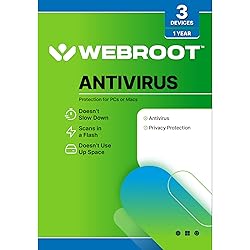VPN for Freelancers: Protecting Online Work
VPN for freelancers has become essential in today’s digital workspace, where remote work is not just common but rapidly becoming the norm. With more professionals embracing the freelance lifestyle, the importance of maintaining strong cyber security has never been clearer. As assignments are completed from home, coffee shops, or co-working spaces, freelancers are exposed to unique privacy risks that traditional office workers rarely face. This makes a virtual private network (VPN) a critical tool in safeguarding sensitive data and ensuring the security of online activities.
Why Freelancers Need Enhanced Online Security
Freelancers, by the very nature of their work, often connect to public Wi-Fi networks, share confidential documents online, and collaborate with clients across the globe. These practices can expose them to a host of cyber threats, such as hacking, identity theft, and data interception. Unlike larger businesses, freelancers may not have dedicated IT departments to implement robust security measures, making them attractive targets for cybercriminals.
Without adequate protection, freelancers risk not only their own data but also their clients’ confidential information. This can damage reputations and client relationships, potentially resulting in lost income and trust. Implementing advanced online security practices, therefore, should be a priority for every independent professional.
How a VPN for Freelancers Works
A VPN is a security tool that encrypts your internet connection, making your online tasks private and secure. When you use a VPN, your internet traffic is routed through a secure, remote server. This process masks your IP address and encrypts your data, shielding it from prying eyes. This is especially important when using unsecured networks—a common scenario for freelancers working in public spaces.
With a VPN, any data transmitted while sending invoices, accessing client portals, or uploading deliverables is protected from cybercriminals. Even if someone manages to intercept your connection, the encryption ensures your information remains unreadable and secure.
Key Benefits of Using a VPN for Freelancers
1. Data Privacy and Protection
One of the most crucial advantages of using a VPN for freelancers is the enhanced protection of sensitive information. Your business communications, client contracts, and financial transactions are kept confidential and safe from hackers and eavesdroppers.
2. Safe Use of Public Wi-Fi
Coffee shops, airports, and libraries are popular workspaces for freelancers, but their Wi-Fi connections are often poorly secured. A VPN allows you to work confidently from any location, knowing that your data is encrypted and your online activities are protected.
3. Access to Geo-Restricted Content
Freelancers who work with international clients may need to access content or tools restricted in certain countries. A VPN can enable connection to servers in those regions, bypassing location barriers and keeping work flowing smoothly.
4. Anonymity for Sensitive Projects
Some freelancers handle sensitive projects that require client confidentiality, such as investigative research or content moderation. A VPN masks your online identity, adding another layer of protection.
Choosing the Right VPN for Freelancers
With countless VPN providers available, selecting the right one can feel overwhelming. Consider these factors to ensure you choose the best option for your freelance work:
– Strong Encryption Standards: Opt for VPNs that use advanced encryption protocols like OpenVPN or WireGuard.
– No-Logs Policy: A trustworthy VPN doesn’t track or store your browsing activity.
– Speed and Reliability: High-speed connections are essential for video calls, uploads, or downloads.
– Multi-Device Support: Freelancers often use laptops, phones, and tablets. Ensure the VPN supports all your devices.
– Good Customer Support: Reliable customer service can be invaluable if you encounter technical issues.
Integrating VPNs into Your Workflow
Using a VPN is straightforward and fits easily into any freelance workflow. Simply install the VPN client, choose your server location, and connect before starting work. Many VPNs allow you to set up an automatic connection whenever you start your device, reducing the risk of accidentally working unprotected.
Pair your VPN usage with other cyber security best practices, such as using strong passwords, enabling two-factor authentication, and regularly updating your software. This comprehensive approach will significantly reduce your vulnerability to cyber threats.
Conclusion
As remote work becomes an integral part of the modern economy, understanding and implementing strong online security measures is vital. A VPN for freelancers offers a practical, affordable way to safeguard sensitive information, maintain privacy, and protect both your business and your clients. Adopting a VPN is a smart, proactive step every freelancer should consider as part of a robust cyber security strategy.


